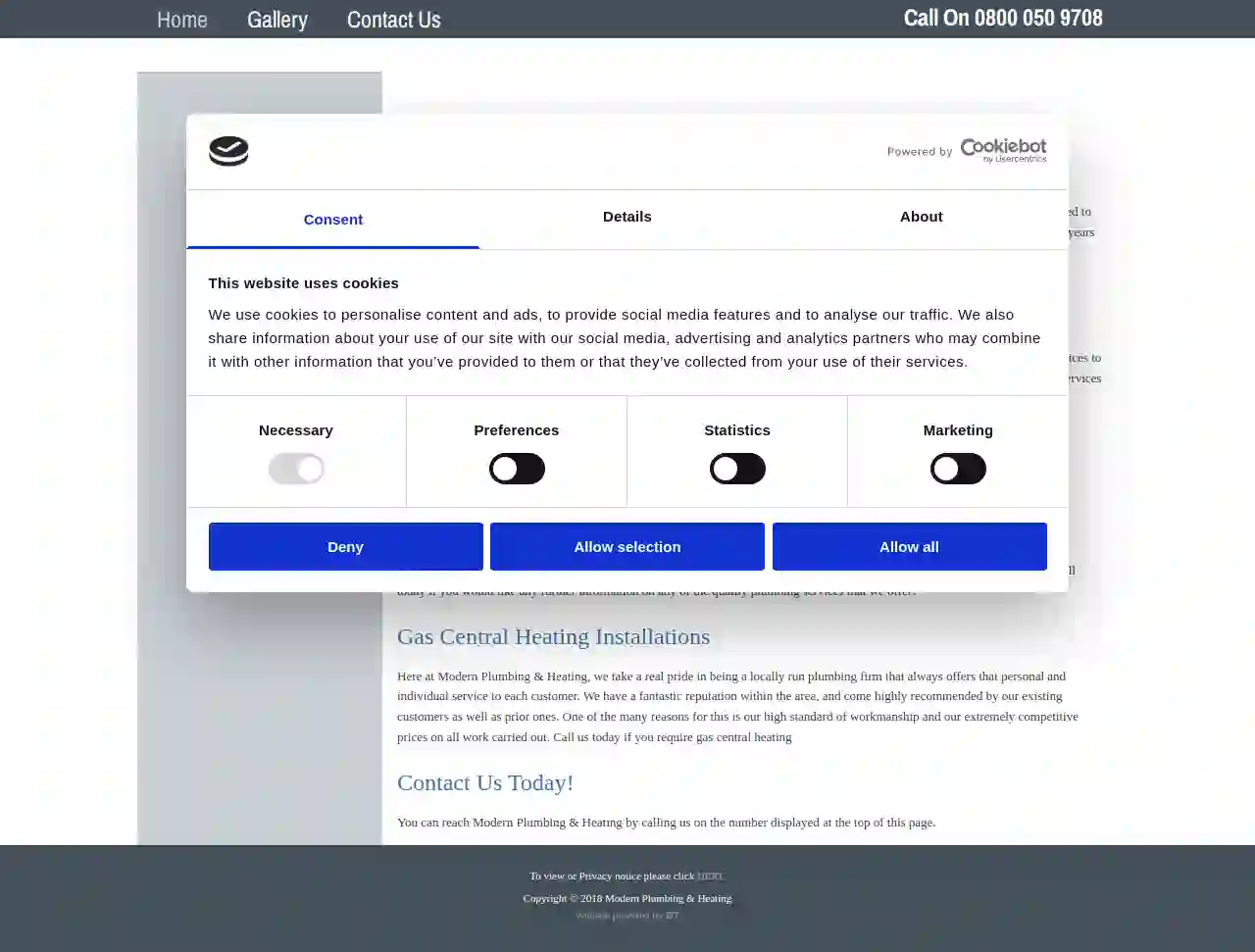AC Repair Bury Saint Edmunds
Find AC Repair in Bury Saint Edmunds
Receive multiple Air Conditioner Repair quotes for your project today! Compare profiles, reviews, accreditations, portfolio, etc... and choose the best deal.
- J
J White Plumbing & Heating
53 reviewsIpswich, GB- Services
- Why Us?
Get Quote 
East Coast Heating & Plumbing Services
54 reviewsLowestoft, GBEast Coast Heating & Plumbing Services Ltd. has been serving the Lowestoft area since 1968. Colin Fuller, the founder, began his career after leaving school at 16, gaining experience in building construction, plumbing, and central heating. He started his own business, 'East Coast Heating & Plumbing Svcs', and quickly built a reputation for quality work and reliability. The company has evolved over the years, keeping pace with technological advancements in the heating and plumbing industry. From solid fuel boilers to modern condensing boilers, renewable energy systems, and everything in between, East Coast Heating & Plumbing Services Ltd. has always offered the latest solutions to meet their customers' needs. Gary Fuller, Colin's son, joined the firm in 1974 and now leads the company with a focus on high-efficiency products, boiler repairs, and servicing. They pride themselves on their loyal customer base, many of whom have been with them for years, relying on their expertise and commitment to quality. East Coast Heating & Plumbing Services Ltd. offers a wide range of services, including bathroom and shower installations, boiler installations and repairs, gas appliance installations, and more. They work closely with trusted business partners for associated building work, tiling, electrical, carpentry, and decorating. Their commitment to customer satisfaction is evident in their detailed approach to installations, including flushing the system, adding chemicals, and providing a Benchmark Log Book for each installation. They are also members of Gas Safe Register, ensuring all gas work is carried out safely and to the highest standards. Whether you need a new boiler, a bathroom renovation, or any other plumbing or heating service, East Coast Heating & Plumbing Services Ltd. is your trusted local expert.
- Services
- Why Us?
- Accreditations
- Our Team
- Gallery
Get Quote- Pi
Pitkin & Ruddock (Ipswich) Ltd
4.84 reviewsIpswich, GB- Services
- Why Us?
Get Quote 
Modern Plumbing & Heating
57 reviewsLowestoft, GBModern Plumbing & Heating is a locally run business based in Lowestoft, Great Yarmouth, serving the surrounding areas. We have many years of experience in the plumbing and heating trade and pride ourselves on providing a professional yet friendly service for all your plumbing and boiler needs. We offer a wide range of services including boiler replacements, gas central heating installations, plumbing installations and repairs, bathroom installations and wet rooms, and emergency call outs. All our boiler installations come with a manufacturer's warranty as standard. We are Gas Safe registered (32818) and have a fantastic reputation within the area, highly recommended by both existing and past customers. Our high standard of workmanship and extremely competitive prices are just some of the reasons why people choose Modern Plumbing & Heating.
- Services
- Why Us?
- Gallery
Get Quote- Ho
Homewarm Plumbing and Heating. Ipswich
1Ipswich, GB- Services
- Why Us?
Get Quote 
AES National Ltd
4.413 reviewsAnchor House, 109 Newton Road, Ipswich, IP3 8HQ, GBAES National is a leading Mechanical Services provider, established in 1989, with a team of 25 dedicated professionals, including plumbing, fire safety and renewable heating experts. We offer a Fixed Price Policy on call-outs, a two-year guarantee, and provide expertise and knowhow to ensure projects are completed quickly and to the highest possible standards. Our services include Heating & Plumbing, Renewables, BEAM Central Vacuum Systems, and Underfloor Heating systems. We are Gas Safe certified, MCS, OFTEC, and SafeContractor approved, and our plumber team members are accredited GOLD installers of Worcester Bosch Boilers. We liaise with Building Control, Fire Officers, Architects, local building contractors, and Clients to ensure systems meet regulatory standards. Our annual turnover is £1.75m, and we strive for continued growth to meet customers' needs.
- Services
- Why Us?
- Accreditations
- Gallery
Get Quote- Ha
Haven Refrigeration & Air Conditioning
53 reviewsIpswich, GB- Services
- Why Us?
Get Quote - Ba
Barber and Clarke Ltd
53 reviewsIpswich, GB- Services
- Why Us?
Get Quote - Ca
Carl Wigg Auto Services
4.985 reviewsLowestoft, GB- Services
- Why Us?
Get Quote - Fo
Foulger's Domestic Plumbing and Heating
1Ipswich, GB- Services
- Why Us?
Get Quote
Over 16,895+ HVAC Companies in our network
Our HVAC experts operate in Bury Saint Edmunds & beyond!
HVACCompaniesHub has curated and vetted Top HVAC Companies in Bury Saint Edmunds. Find a trustworthy contractor today.